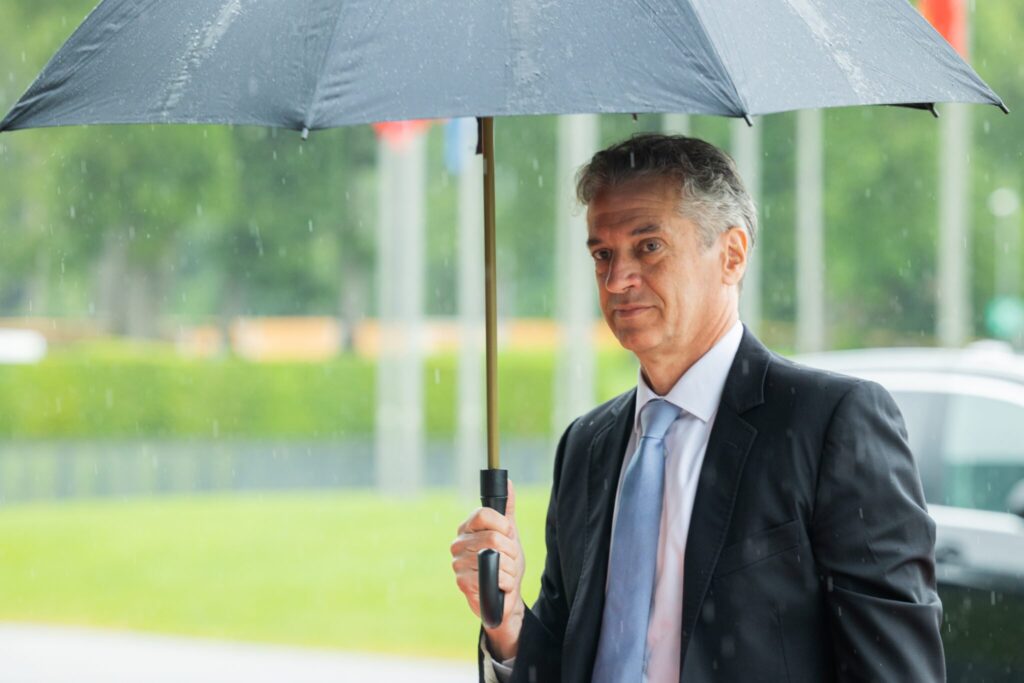New taxes are being introduced, we keep hearing empty promises on housing, laws are being written by non-governmental organisations and adopted out of the public eye, some victims of the August floods are still homeless – in short – the country is in ruins, and in the meantime, the government is adopting space strategies. Yes, you read that right. The words of the Minister of the Economy, Tourism and Sport, when he said that “we can compete with the best,” sound particularly ironic. Can we? The situation in Slovenia does not reflect that.
While Slovenia is drowning in crises in absolutely every area, and Slovenian inflation is well above the European Union average, the Golob government is simply not dealing with any of this. In case you are wondering what the government is doing – according to the Slovenian Press Agency (STA), at a recent correspondence meeting, the government adopted the first Slovenian Space Strategy 2030, which sets out guidelines and activities to increase the competitiveness of the Slovenian space industry and to establish leadership in space areas where Slovenian stakeholders excel. Slovenia will also apply for full membership in the European Space Agency (ESA).
“Do you also think that the political climate in Slovenia is quite turbulent at the moment? The economy, the people and development are suffocating, and meanwhile, the coalition/the government are preoccupied with themselves, passing laws under urgent procedures; showing ineffective action after the August floods and reversing decisions already taken by the government, deterioration of most macroeconomic indicators, adding more and more burdens to the economy,” wrote Marko Lotrič, President of the National Council, on social media X, and showed in a table what the current government has brought us to, which, with its ineffective and harmful behaviour, is bringing Slovenia closer to doom with every passing day.
But the Golob government has no time to deal with any of that. They are too busy dealing with space, and as STA reports, they intend to expand cooperation in international efforts to discover and explore space, to develop the knowledge and technologies that enable human and robotic exploration missions, and to promote the development and use of space applications for a stronger commercial, sustainable and creative future using next-generation technologies.
The government wants to promote science, technology, engineering and math education among future generations, but it is unable to regulate even the most basic areas, about which it made so many promises before the elections to the National Assembly. They claim they want to encourage entrepreneurship in space innovation, but at the same time, they have no problem introducing new taxes every day, which is literally driving our entrepreneurs out of the country.
“The space strategy that has been adopted is a perfect illustration of how this government works. Dealing with completely irrelevant things while the country is in a state of increasing disarray,” commented Edvard Kadič, communications expert, on X. He recently said that Robert Golob is his own worst enemy. But apparently, he is not only his own worst enemy but also the citizens’.
“An elderly relative of mine, in distress, recently explained to me how he can no longer take care of his sick wife, how he cannot get a spot in a retirement home, there is not enough help at home, they have no children, he can no longer even climb the stairs. And the government is talking about space. Seriously?” doctor Federico V. Potočnik was horrified by the news.
It is also important to note that last year, for the first time in 10 years, the Slovenian economy as a whole posted a deficit with foreign countries, and for the first time since 2009, non-financial corporations also posted a deficit. Meanwhile, financial corporations maintained their surplus, the Statistical Office of the Republic of Slovenia noted a month ago. The economy as a whole will run a deficit with foreign countries of 637 million euros in 2022, or 1.1 percent of gross domestic product (GDP), ending a ten-year period of net lending or surplus creation, the Statistical Office said. In 2021, for example, the economy as a whole generated a surplus of almost 2 billion euros with foreign countries, which represents 3.8 percent of GDP. Given the poor state of the economy, it is even more ironic that the Minister of the Economy, Matjaž Han, claims that Slovenia’s aerospace sector and Slovenian companies are proving that they can match the best in the world in terms of performance in their fields.
A. H.


